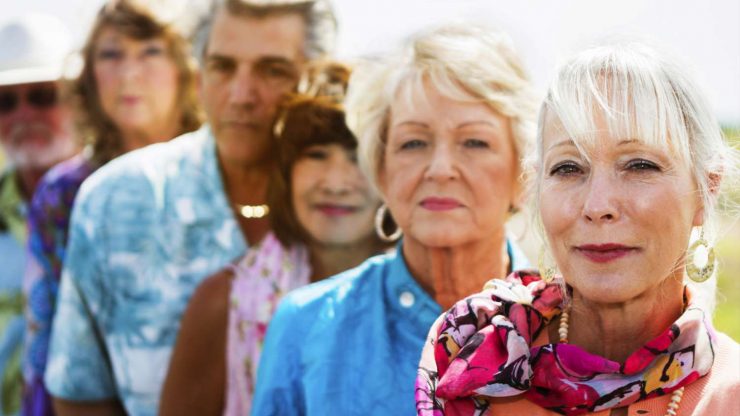
Do ‘baby boomers’ really have it all?
by Lydia Wilson
In a time where house prices, tuition fees and joblessness are constantly rising, the outlook for many young people is becoming increasingly dismal. But who do we blame for this penalisation? Well, the media portray the generation of ‘baby boomers’ (supposedly aged between 48 and 68) as future stealing, Lord Sugar type pensioners who sit on wealth at the expense of the young. However, I’m not sure this is entirely fair. Through considering statistics and news articles, this is evidently an ill-considered debate that masks the role of the policy makers who are deliberately causing an intergenerational divide and eroding 21st Century citizenship.
Firstly, I’d like to consider how the lack of discussion surrounding “poverty and inequality in housing, assets and income among our old people” helps to fuel the stereotype of ‘baby boomers’ as selfish house owners. Brigid Delaney argues that every effort young people make to saving money is futile because the ‘baby boomers’ have ‘stolen’ all the houses. Meanwhile, Jeremy Leach argues that “growing numbers of elderly people are living in family-sized houses after their children have moved out” which is creating an increased risk of houses, which could be used for young families, being under used. However, these articles fail to consider that these so-called ‘baby boomers’ often don’t own any property at all, around 20% of all 45 to 54 year olds are living in social rented housing.
Not only that but 40% of all rented housing is classified as un-decent which too many elderly people live in. These statistics present a contrasting image to the image presented by the media and shows. Simplifying current housing and socioeconomic issues to merely a young-versus-old conflict is naïve. It is important to therefore understand that older people do not own housing because they are selfish but because government policy allowed them to and whether their housing is worth more or less in 2017 is solely a geographical coincidence.
And for those lucky ‘baby boomers’ who have some disposable income, well they are spending this extra money on their families. The older generations are one of the main providers of “financial, emotional and physical resources”. A key example of this is the way the structuring of maintenance loans for university students leaves children from high income families unable to pay their accommodation costs. This means that parents not only have to ‘fork out’ to pay for accommodation but also pay for additional costs such as food, books and social lives. This makes young adults less likely to be able to live independently, showing that ‘baby boomers’ do not have it all because they are using their money to fund their children’s education. This intergenerational funding continues way past university, due to the lack of income growth for the young it is easy to see that they will be unable to pay for childcare for their new-borns. This is where the ‘baby boomers’ step in by providing free childcare during the day. Proving how the ‘baby boomers’ are not as greedy as you may assume at first glance because, although the situation has worsened for the young, the ‘baby boomers’ are happy to help.
Phillipson (2013) then considers how the social construction of ageing has caused an emergence of retirement and the welfare state. He argues there are three phases in life; education, work and retirement. However, because elderly people’s healthcare is considered more expensive they are being socially and economically transformed by institutions into welfare problem for the state. Again, this is ill-considered. “There are many other pressures on health care costs, including new equipment, new treatment and changing cultures of healthcare” also, reports show that per head health expenditure have “increased by 8% for ages 65 and over, compared to 31% for ages 5-64”. This is then reflected by expenditure of elderly people decreasing from 40% to 35%. Additionally, elderly people are being so disproportionality represented because the young are so healthy in 2017 for example, “girls born in 2015 can expect to live 82.8 years from birth, while boys will live to 79.1 years”. This shows how elderly people are not the economic burden that the media make them out to be and do not cost the state as much as you may expect. So, the big question still stands, do the ‘baby boomer’ generation really have it all? I don’t believe they do. We should take a critical approach when reading news articles that victimise the young because in 1997, almost a third of elderly people were in poverty. Instead of blaming the older generations for younger generation’s dismal future we should consider how policy makers may be deliberately implementing policies to cause intergenerational conflict because it shifts the blame away from themselves.
References
Phillipson, C., 2013. Ageing. John Wiley & Sons.
Seshamani & Gray, 2002. The impact of ageing on expenditures in the National Health Service, Age and Ageing 31: 287-294

0 Comments